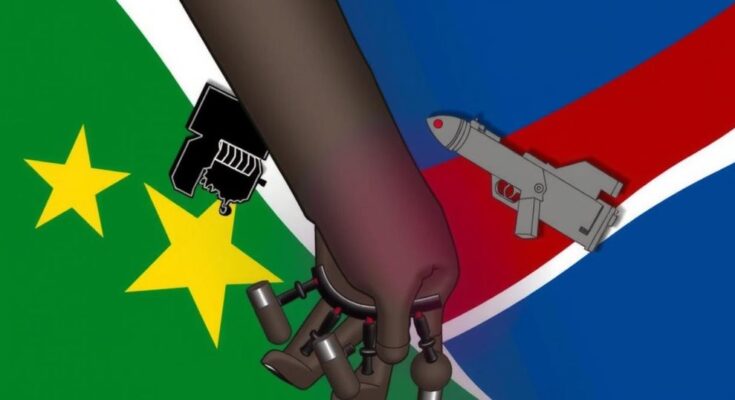Peace talks in South Sudan have resumed after a four-month pause and the sacking of a government delegation, with the aim of addressing and integrating the concerns of opposition groups not included in the 2018 peace agreement. Notably, elections have been postponed due to economic difficulties, emphasizing the need for urgent dialogue among all parties to resolve outstanding issues and safeguard national stability.
The long-stalled peace talks in South Sudan have recommenced in Kenya following a four-month hiatus and the dismissal of the government delegation. This initiative aims to address the ongoing conflict that has severely undermined the nation’s economic stability. The discussions, involving the South Sudanese government and opposition factions not associated with the 2018 peace accord, signify a renewed commitment to achieving peace in the region.
The latest round of talks, named “Tumaini”—meaning hope in Swahili—began in May, following the signing of a “commitment declaration” for peace. However, progress faltered after South Sudan’s President Salva Kiir dismissed the initial delegation. A new team was subsequently formed but faced travel difficulties that hindered their participation in Nairobi. The reasons behind these changes and delays remain undisclosed.
Despite the ongoing struggles in implementing the 2018 peace agreement, South Sudan has decided to delay elections, originally slated for December 2024, now pushed back to 2026, primarily due to issues surrounding voter registration hampered by a dire economic situation that has left civil servants unpaid for over a year. The nation’s economic challenges are exacerbated by disruptions to oil exports caused by a civil war in neighboring Sudan.
During the talks, both sides expressed concerns regarding a new law permitting arrests without warrants, emphasizing its possible violation of human rights. Mediator Lazarus Sumbeiyo called upon all parties to finalize outstanding issues, while Pagan Amum, leader of the South Sudan Opposition Movement Alliance, emphasized the urgency of adhering to prior agreements to avoid total disintegration of the country. Kuol Manyang Juuk from the government urged all factions to build upon existing agreements rather than starting anew.
The South Sudan peace process has a complex history marked by persistent struggles for stability since the country’s independence in 2011. The 2018 peace agreement was intended to resolve a civil war that resulted in significant loss of life and economic turmoil. While initial steps were taken towards peace, the implementation has faced numerous setbacks, including government reshuffles and delays in executing critical provisions. The ongoing economic crisis has further complicated the situation, with key issues such as voter registration and oil exports at the forefront.
The recent resumption of peace talks in South Sudan reflects a pivotal moment for the nation’s pursuit of stability and recovery from years of conflict. Despite considerable challenges, including leadership changes and economic distress, the negotiations present a chance for the government and opposition to unite and address critical concerns facing their country. The urgency articulated by leaders underscores the importance of collaboration to safeguard the future of South Sudan against further disintegration.
Original Source: abcnews.go.com




